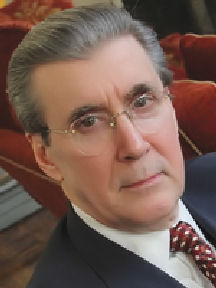
Thirty years ago I was the Conservative Party candidate for New York City mayor running against the incumbent Democrat, David Dinkins, and the Republican-Liberal, Rudolph W. Giuliani.
I ran in 1993 to give voters a conservative choice on Election Day over two liberals.
During the campaign, Giuliani would not appear on the same platform with me. He refused to debate Mayor Dinkins because I was included.
Why was he ducking me? Because Giuliani takes criticism poorly, has trouble laughing at himself and has a short fuse.
His handlers feared a wisecrack from me (and I had plenty of them stored up) might set him off.
Giuliani admitted to columnist Murray Kempton, “Marlin might get under my skin and make me angry.”
Well, Giuliani won, but when he entered City Hall he did not check his character flaws at the front door. Mayor Giuliani thrived on being a mean-spirited, humorless, malicious thug.
By the end of his second term, Giuliani’s obnoxious behavior had taken a toll. The public had grown weary of his personality, and he became a laughingstock. His separation antics from his second wife was bad soap opera.
Also, when the economy was booming at the end of the 20th century, Giuliani abandoned fiscal restraint and became a big spender.
City budget expenditures jumped 25%—twice the inflation rate. Giuliani left his successor a projected operating deficit of $4.5 billion and New York citizens with the highest tax burden of any major municipality in the nation.
However, all of Giuliani’s flaws were swept under the rug after he displayed outstanding leadership on 9/11.
“America’s Mayor” parlayed his fame into a multimillion-dollar, money-making machine.
He and his third wife spent lavishly. Giuliani’s biographer, Andrew Kirtzman reported that their overhead was $250,000 a month.
Over time the Giuliani aura began to fade.
His campaign to be the Republican nominee for president in 2008 was a disaster. He received only 2% of the vote in the South Carolina primary and dropped out.
Celebrity status and a well-heeled campaign treasury did not guarantee victory. Giuliani spent north of $50 million to win one delegate.
Conservatives did not buy into Giuliani stories of his Damascus Road-like conversion.
Republican consultant Nelson Warfield, best described the Giuliani candidacy: “It boarded on science fiction to think that someone as liberal on his many issues as Rudy Giuliani could become the Republican nominee. Rudy didn’t even care enough about conservatives to lie to us. The problem wasn’t the calendar—it was the candidate.”
While Wall Street and Country Club Republicans control campaign money, Giuliani’s failed candidacy proved that socially conservative Main Street and Walmart Republicans control the outcome of primaries.
In recent years Giuliani’s income declined and his third divorce cost him plenty.
A desperate Giuliani foolishly thought an alliance with President Trump would restore his fame and his fortune.
That marriage of convenience was a disaster. Trump treated Giuliani like a servant and stiffed him on legal fees.
And taking center stage in the 2020 post-election follies resulted in Giuliani’s law license being suspended and his criminal indictment in the Georgia election conspiracy case.
Ironically, the RICO law Giuliani abused to make his name as a big-time federal prosecutor in the 1980s, was used by the Atlanta DA to nail him.
Desperate for cash to start paying off the $3 million he owes his white-collar criminal lawyer, Giuliani was forced to put his Manhattan apartment up for sale in August.
To add insult to injury, a legal defense fund website set up by Giuliani friends to raise $5 million was taken down after raising less than $10,000.
Giuliani’s narcissistic need to be in the spotlight has destroyed his reputation and his legacy. Now, he will be remembered for hair dye running down his face and his Georgia jail house mugshot.
Awfully sad, don’t you think?






